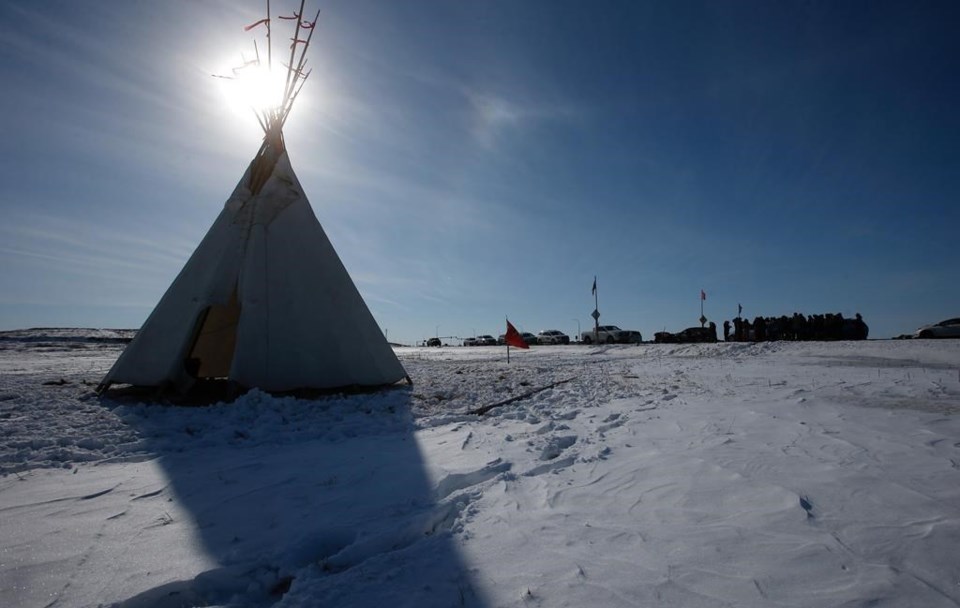OTTAWA — The former head of the RCMP said in December that police were not equipped to handle the complexities of searching a Winnipeg-area landfill for the remains of slain Indigenous women — an effort the Manitoba government also now calls too dangerous.
Brenda Lucki, who resigned her post as commissioner in March, was involved in discussions about searching the privately-owned Prairie Green Landfill north of Winnipeg late last year.
In documents obtained by The Canadian Press through a request under the Access to Information Act, Lucki warned federal officials that the landfill site contained asbestos and other toxic gases, including ammonia.
"As you see this is a complex matter that police are not equipped to deal with, " she wrote in a Dec. 14 email to the deputy ministers of Public Safety Canada and Crown-Indigenous Relations and Northern Affairs.
The federal government was looking at how it could respond to pleas for help from relatives of the women who were dismayed after the Winnipeg police decided against a search, citing a low likelihood of success.
Police believe the remains of Morgan Harris and Marcedes Myran are in the landfill.
Jeremy Skibicki faces first-degree murder charges in their deaths as well as for the death of Rebecca Contois, whose partial remains were found last year at the city-owned Brady Road Landfill south of Winnipeg.
The City of Winnipeg posted a notice on its website this week saying the Brady landfill was closed until further notice but did not say why.
An unidentified woman Indigenous leaders have named Mashkode Bizhiki’ikwe, or Buffalo Woman, is also believed to be a victim of Skibicki's. Police have said they do not know where her remains may be.
Last fall Ottawa funded a feasibility study into a possible search of the Prairie Green Landfill. That study was carried out by the Assembly of Manitoba Chiefs following widespread backlash to police's decision not to search the dump.
The findings of that study released last month said a search was feasible, but that it would not guarantee the women's remains would be found.
It also said not searching for the women would cause "considerable distress" to their families, and send the wrong message to the wider First Nations community, which the report said "do not deserve to be told we are trash."
The study said searchers would have to work through piles of hazardous materials and that the overall effort could take up to three years, with a potential cost of $184 million.
Two days after Lucki's email on the complexities of such a search, she followed up with another document listing the different ways the RCMP might be able to help Winnipeg police. That included providing advice based on the expertise the RCMP gleaned from past searches including in the case of Robert Pickton.
The search of Pickton's pig farm in Port Coquitlam, B.C., for the remains of women who were disappearing from Vancouver's Downtown Eastside became known as the largest crime scene in Canada.
In that document, which The Canadian Press first reported on back in March, the RCMP said search the Pickton property required reliance on "non-law enforcement personnel" like heavy equipment operators, engineers and anthropologists trained to identify human remains.
Lucki said in that document that "chemical, biological, radiological, nuclear and explosive, and health and safety concerns" will be much greater at the Prairie Green Landfill than during the search of Pickton's farm.
Manitoba Premier Heather Stefanson recently met with relatives of the slain women and afterwards said the Progressive Conservative government could not support searching the landfill because of the safety risks it posed.
She told reporters that cost was not the issue, and that the province would not stand in the way if the federal government decided to lead the way on a search, underlining how it would need to guarantee workers' safety.
Crown-Indigenous Relations Minister Marc Miller's office has said they are still reviewing the feasibility study. They have not responded to Stefanson's decision not to support a search.
Assembly of Manitoba Chiefs Grand Chief Cathy Merrick asked the premier to reconsider her decision, pointing out the study addressed all of the safety precautions that would need to be undertaken to proceed with a search.
The feasibility report says that in order for a search to happen, "the safety of all members involved in such a process is of the highest priority" and that a conveyor belt, operated by trained personnel, would be used to transport material.
This report by The Canadian Press was first published July 7, 2023.
Stephanie Taylor, The Canadian Press




